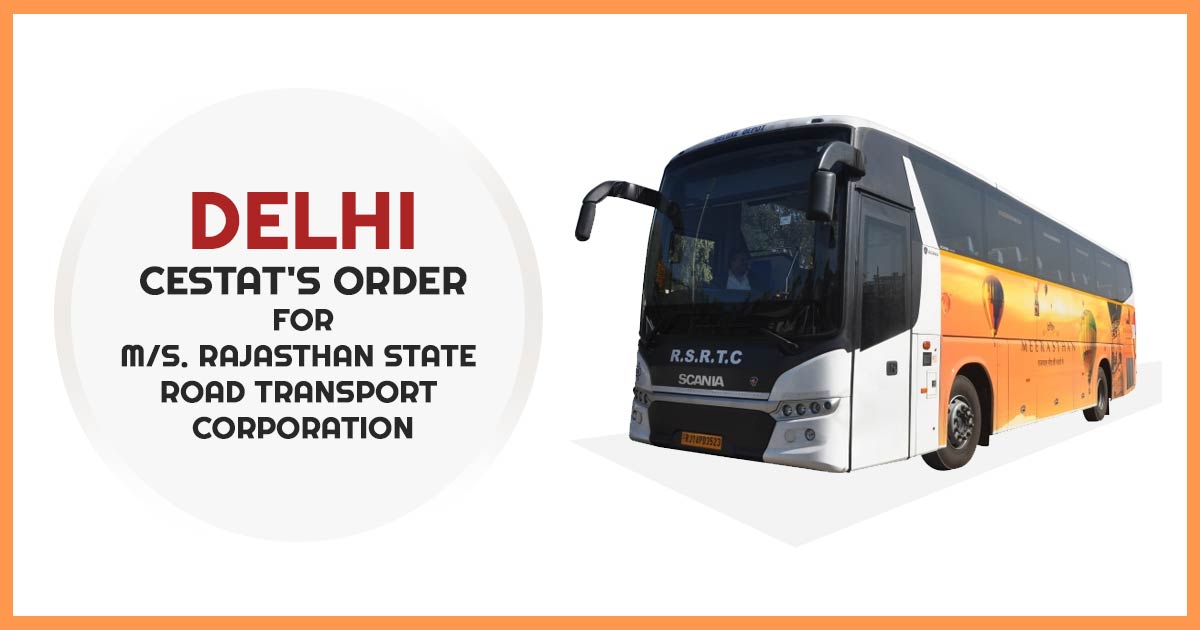
A service tax is liable to get paid on buses meant for carrying passengers and cannot be called a means of transport of goods, the Delhi Bench of Customs, Excise and Service Tax Appellate (CESTAT) ruled.
The bench of Binu Tamta (Judicial Member) and Hemambika R. Priya (Technical Member) noted that on the applicability of the benefit of exemption under Clause 22(b) of Notification No. 25/2012-ST, the authorities took a very theoretical standpoint to say that the appellant had booked the income from the aforesaid service under the heads of ‘parcel service’ and ‘postal mail service’ and not under the ‘hire charges’. The agreement here does not speak of parcel or postal mail service.
Read Also: CESTAT: Service Tax Can’t be Paid If TDS Already Deducted from Assessee’s Account
The agreement is that the purpose is to make available the space on the roof of the buses to M/s Sai Marketing & Loading Co., which is hiring for space for a license fee.
The petitioner is an autonomous body set under the Road Transport Corporation Act, 1950, of Rajasthan and is the only government public transporter that is in the state, functioning with a large number of buses of different categories. The appellant agrees with Sai Marketing & Loading Company, Jalgaon, for furnishing open space in the carrier of buses for which they were levying the license fee every month.
For the period April 2012 to March 2015, show cause notice (SCN) was issued, as the appellant has furnished the space on the roof of buses for the transportation of parcels and goods from one set bus depot to another and even the space furnished at the bus depot for storage of these parcels. Therefore, demand was raised. for the period April 2012 to March 2014 The adjudicating authority dropped the demand as being time-prohibited; it carried the demand of Rs 9,10,796 for the period April 2014 to March 2015. On the appellant’s petition, the order was confirmed.
Under the norms of the agreement, the department argued that only the space on the roof of the buses has been provided on hire and not the means of transportation that is the bus, as the bus is meant for carrying passengers and thus cannot be called a means of transporting goods. Under ‘parcel service’ and ‘postal service’ the appellant has booked their income and not under ‘hire charges’.
The tribunal remarked that a bare reading of Clause 22 shows that it covers services through the way of giving on hire and regarding the purpose of the agreement between the two, it applies to the present case. Sub-clause (a) of Clause 22 does not apply to the facts here, but the bench uncovered that as M/s Sai Marketing & Loading Co. is a goods transport agent to whom the open space has been given on hire for transportation of goods or parcels, sub-clause (b) of Clause 22 applies as it conveys of hire to a goods transport agency, a means of transportation of goods. The exemption furnished in Clause 22 covers the activity, and thus, the appellant is not accountable for paying the service tax.
ITAT remarked that the heads below have dealt with the problem superficially since they have regarded only the definition of service” as per Section 65B(44), which cited that any activity taken via a person for another for consideration is covered by the definition of “service,” and as the appellant was not in the transportation of goods by road service, the service furnished was not covered by Clause (p)(i) of Section 66D.
As per the tribunal the bus, which is for carrying the passengers from one place to another could not be called the means of goods transportation and hence the appellant does not qualify for claiming the exemption under Clause 22(b) of the notification. The findings are not sustainable.
| Case Title | M/s. Rajasthan State Road Transport Corporation Versus Commissioner of Central Excise and Service Tax Commissionerate |
| Case No | Service Tax Appeal No.52235 of 2018 |
| Date | 17.05.2024 |
| Appellant by | Sameer Sood |
| Respondent by | S.K. Meena |
| Delhi CESTAT | Read Order |